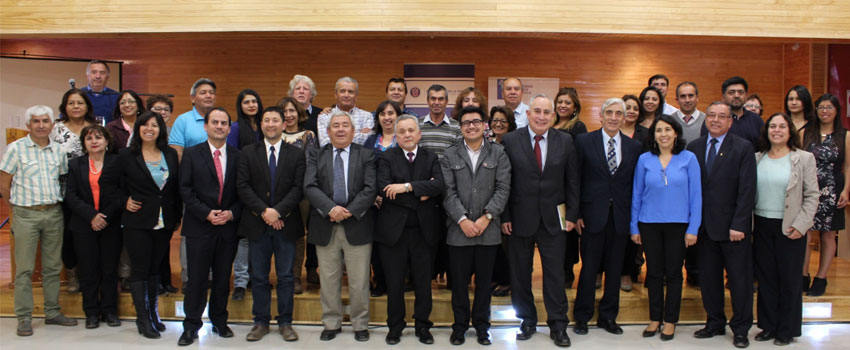
This is thanks to the Scientific Inquiry Program for Science Education (ICEC) developed by the Faculty of Sciences of the ULS.
Improving the quality of teaching and learning of natural sciences in public - municipal schools and high schools, using scientific inquiry as a pedagogical approach is the purpose of the Scientific Inquiry Program for Science Education (ICEC), developed in an alliance between the Ministry of Education and 13 universities in the country, in the case of the Coquimbo Region, with the Faculty of Sciences of the University of La Serena.
This year, the ICEC Program provides training to 27 teachers from municipal schools and high schools in the communes of Punitaqui, Combarbalá and Ovalle, which contributes to improving the quality of science education.
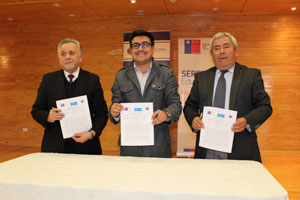 This was highlighted by Professor Isman Valdivia, from the La Higuera Basic School, in Punitaqui, who noted: “I thank the Ministry of Education and the University of La Serena for this specialization course in science, which will help us deepen our knowledge and apply innovative practices with our students. "Also thank the municipalities that are giving us the facilities to take the course."
This was highlighted by Professor Isman Valdivia, from the La Higuera Basic School, in Punitaqui, who noted: “I thank the Ministry of Education and the University of La Serena for this specialization course in science, which will help us deepen our knowledge and apply innovative practices with our students. "Also thank the municipalities that are giving us the facilities to take the course."
The launch of the ICE Program was held at the Punitaqui House of Culture and considered the signing of agreement protocols between the Ministry of Education, the University of La Serena and the beneficiary municipalities.
The head of the Municipal Education Department of Punitaqui, Guillermo Jaime, valued that “these courses have real importance for teachers, to channel improvement in the students' knowledge. The entire commune of Punitaqui thanks the government and its authorities.”
The head of the Municipal Education Department of Combarbalá, Silvia Cortés, described it as a “very valuable course,” who thanked “the opportunity that the Mineduc gives us in conjunction with the University of La Serena, mainly because the teachers are given the opportunity of the rural sector (….). It is of great help, since it would be very difficult for these teachers to train due to logistics issues, to be able to get to La Serena. “The majority are teachers who do not have the possibility of sharing knowledge with their peers.”
With this course, the teacher professional development policy is coming to life, in the opinion of the head of the Municipal Education Department of Ovalle, Nelson Olivares, “of inviting teachers from our commune, from the rural sector, from schools in microcenters where University go to field. It is a tremendous effort that Mineduc is making, which has been very well received by our teachers. "You see the enthusiasm in participating, improving yourself and acquiring better tools to achieve true quality education."
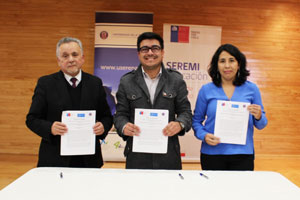 “We are happy with this initiative that is maintained for the second consecutive year,” said the Seremi of Education, Luis Tello, who added that “as Seremía we are going to provide support to all institutions that want to improve the education of our children and young people, which is the seal of our government program. Congratulate the University of La Serena, we are committed to improving education, even more so scientific education, which is fundamental for the development and innovation of our children and young people. Grateful for the agreements signed with Punitaqui, Ovalle and Combarbalá, projects that allow each of the communes to continue training future professionals and future scientists."
“We are happy with this initiative that is maintained for the second consecutive year,” said the Seremi of Education, Luis Tello, who added that “as Seremía we are going to provide support to all institutions that want to improve the education of our children and young people, which is the seal of our government program. Congratulate the University of La Serena, we are committed to improving education, even more so scientific education, which is fundamental for the development and innovation of our children and young people. Grateful for the agreements signed with Punitaqui, Ovalle and Combarbalá, projects that allow each of the communes to continue training future professionals and future scientists."
“It is the reaffirmation of the commitment that the University of La Serena has with the region and the country to provide the best education, of the highest quality,” stated the Academic Vice Chancellor of the University of La Serena, Dr. Jorge Catalán, who added that “ This is materialized in the joint work with the Ministry of Education, in this training in science inquiry. It is very important that we work collaboratively, and you will find our best disposition to make this happen.”
The ICEC Program considers the ICEC Rural Education Course in b-learning modality, with a certification of 200 pedagogical hours, corresponding to 139 face-to-face hours and 61 virtual hours, taught to the 27 teachers by the Faculty of Sciences of the ULS. The course program includes, among other curricular actions: Learning and research communities in the classroom; Vision of science and science education; Curriculum in natural sciences; Scientific inquiry and design of educational resources and Evaluation for learning.
Source: Secreduc Coquimbo Press
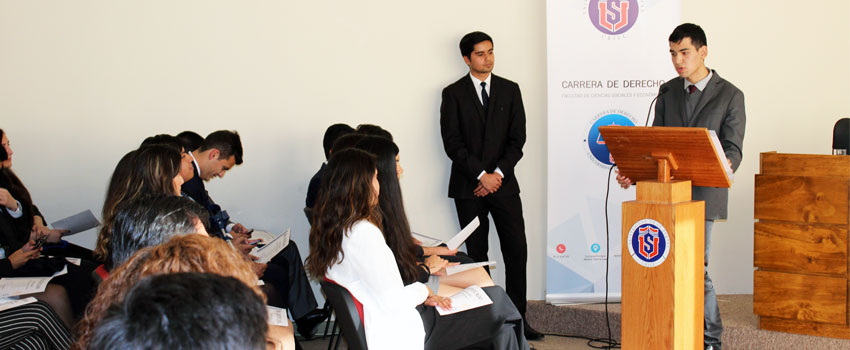
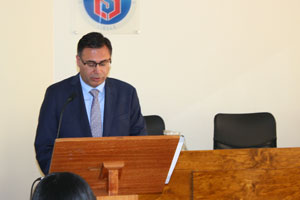 In the activity, the Director of the Law program, lawyer Germán Solís, indicated that “on this occasion, we celebrated for the last time 20 students of the Law program their certification as attorneys, and the last time, because starting this year , we will celebrate the graduation of the first generation of our career.”
In the activity, the Director of the Law program, lawyer Germán Solís, indicated that “on this occasion, we celebrated for the last time 20 students of the Law program their certification as attorneys, and the last time, because starting this year , we will celebrate the graduation of the first generation of our career.”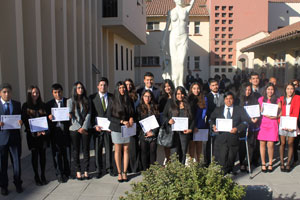 The accreditation of the “Ius Postulandi” consisted of the delivery by the Faculty Secretary, Mg. Carolina Rodríguez, and the Director of the degree, Germán Solís, of a certificate that establishes the new status of the students of the degree.
The accreditation of the “Ius Postulandi” consisted of the delivery by the Faculty Secretary, Mg. Carolina Rodríguez, and the Director of the degree, Germán Solís, of a certificate that establishes the new status of the students of the degree.
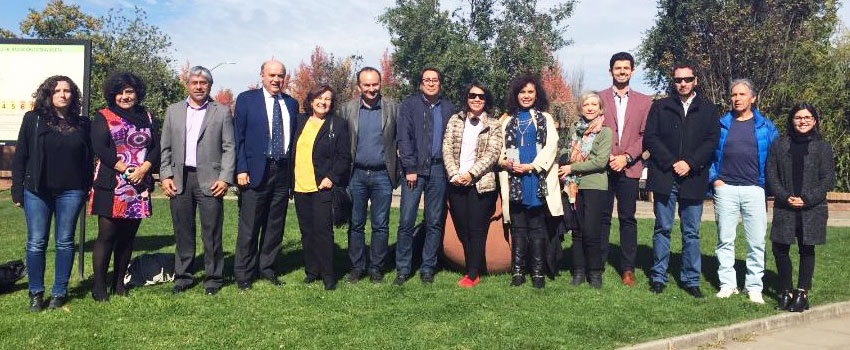
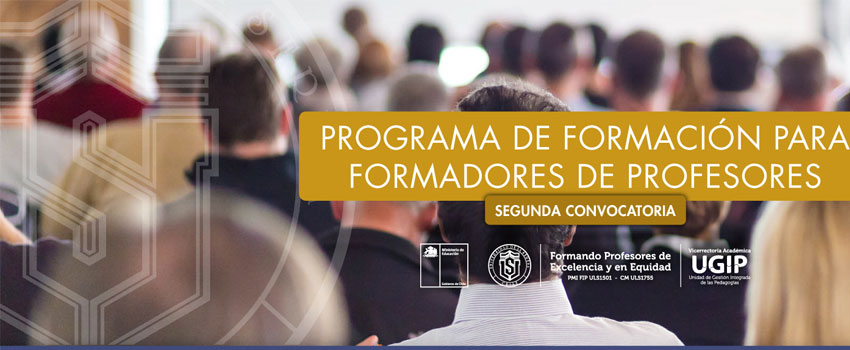

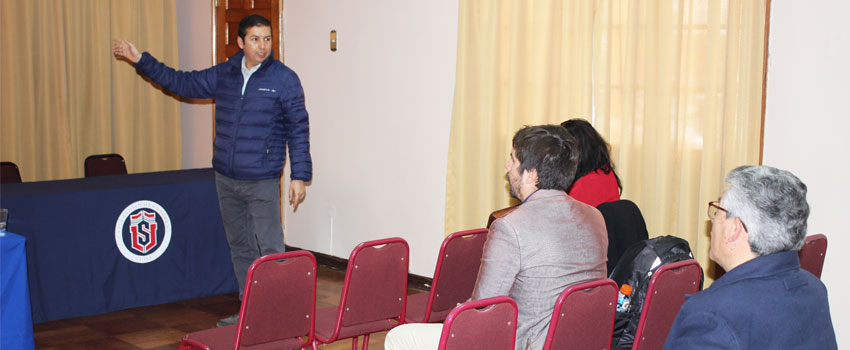
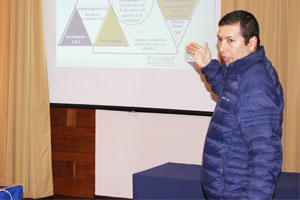 The call is aimed at undergraduate and graduate university students who are carrying out their thesis or memoirs, and will provide up to $26 million to materialize the initiatives, which must be executed in two stages.
The call is aimed at undergraduate and graduate university students who are carrying out their thesis or memoirs, and will provide up to $26 million to materialize the initiatives, which must be executed in two stages.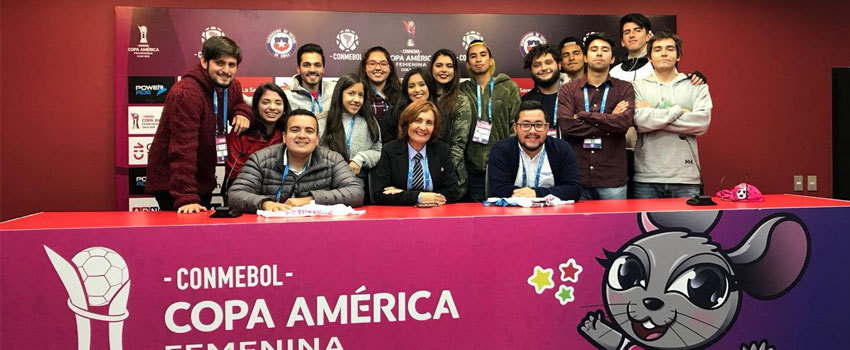
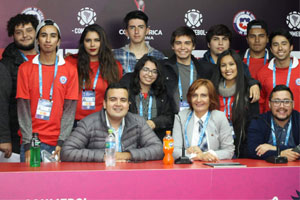 For those involved, this was undoubtedly a very pleasant experience within their training as future journalists. “I felt like it was like a professional internship, I had great responsibilities and even for the first time I was able to ask questions at press conferences. I had the opportunity to share with several journalists and realize the work and responsibility that comes with being part of a media outlet. Furthermore, working as a team was undoubtedly essential to fulfill all the responsibilities that it meant to be press for the Copa América Femenina,” said Robinson Aguirre, a second-year student.
For those involved, this was undoubtedly a very pleasant experience within their training as future journalists. “I felt like it was like a professional internship, I had great responsibilities and even for the first time I was able to ask questions at press conferences. I had the opportunity to share with several journalists and realize the work and responsibility that comes with being part of a media outlet. Furthermore, working as a team was undoubtedly essential to fulfill all the responsibilities that it meant to be press for the Copa América Femenina,” said Robinson Aguirre, a second-year student.
 This was highlighted by Professor Isman Valdivia, from the La Higuera Basic School, in Punitaqui, who noted: “I thank the Ministry of Education and the University of La Serena for this specialization course in science, which will help us deepen our knowledge and apply innovative practices with our students. "Also thank the municipalities that are giving us the facilities to take the course."
This was highlighted by Professor Isman Valdivia, from the La Higuera Basic School, in Punitaqui, who noted: “I thank the Ministry of Education and the University of La Serena for this specialization course in science, which will help us deepen our knowledge and apply innovative practices with our students. "Also thank the municipalities that are giving us the facilities to take the course." “We are happy with this initiative that is maintained for the second consecutive year,” said the Seremi of Education, Luis Tello, who added that “as Seremía we are going to provide support to all institutions that want to improve the education of our children and young people, which is the seal of our government program. Congratulate the University of La Serena, we are committed to improving education, even more so scientific education, which is fundamental for the development and innovation of our children and young people. Grateful for the agreements signed with Punitaqui, Ovalle and Combarbalá, projects that allow each of the communes to continue training future professionals and future scientists."
“We are happy with this initiative that is maintained for the second consecutive year,” said the Seremi of Education, Luis Tello, who added that “as Seremía we are going to provide support to all institutions that want to improve the education of our children and young people, which is the seal of our government program. Congratulate the University of La Serena, we are committed to improving education, even more so scientific education, which is fundamental for the development and innovation of our children and young people. Grateful for the agreements signed with Punitaqui, Ovalle and Combarbalá, projects that allow each of the communes to continue training future professionals and future scientists."